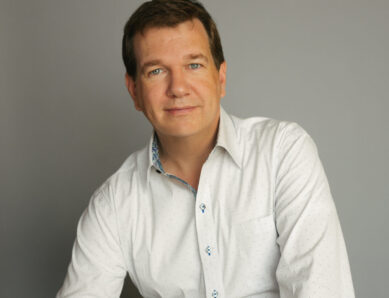From the title of his book, “Nine Lies About Work,” I expected my conversation with Ashley Goodall to reveal a few uncomfortable truths about work. Instead, I was met with a parade of radical, fresh ideas for managers who want to do things differently and better.
A senior leader at Cisco, Goodall collaborated with bestselling author Marcus Buckingham on his book, subtitled “The Freethinking Leader’s Guide to the Real World.”
In it, Goodhall takes a sledgehammer to several fundamental ideas of leadership and management.
Forget Everything You Think You Know
So what is this “fake news,” as Goodall puts it, that’s hampering success in the workplace?
It ranges from the idea that “people care which company they work for” (they don’t, they care about teams) to “leadership is a thing” (it’s not, but “followership” is).
Goodall and Buckingham draw on research and real-life stories to build their case against each of the nine lies. The result is a compelling read that rings true and makes you think.
Self-Centered Feedback
For example, take lie number five: “people need feedback.” What’s wrong with that?
“It rests on the idea that if I [as the manager] don’t tell you how to get better, you’re never going to figure it out, and the best way for you to improve is to be more like me,” Goodall explains.
This doesn’t work because we “learn by building on patterns of behavior in our own brains that are completely idiosyncratic.”
“I can’t force you to see something differently. I can share with you my reaction to what you did… but I can’t actually compel you to grow by sharing with you a bunch of ideas that essentially boil down to ‘here’s how I would do it.’ Because you’re not me, and you never will be.”
Turn Feedback On Its Head
He points out that it’s easy for feedback to focus on risk mitigation, rather than on encouraging excellence. This can raise quality from negative to zero, but not from “zero to infinity,” as seems to often be expected.
By contrast, those who understand that “there’s no one-size-fits-all approach to excellence” can really help their people fly.
The trick? Notice quality and react immediately.
“If you see somebody do something [great] on your team, go, ‘Gosh, that really landed on me. That made a huge difference to me. That moved me. That impressed me. What were you thinking? Have you ever done that before? Could you do it again in different circumstances? Could you do it more powerfully?’”
This approach turns the traditional feedback model on its head.
Rather than focusing on your people – what they’re doing right, what they’re doing wrong – you focus on your own reactions. When you’re delighted with something, feed that back and then, with your team member, draw out what went well.
How to Truly Rate Performance
There’s a related lesson in lie number six: “people can reliably rate other people.”
It turns out that humans are “reliable raters of not very much,” Goodall remarks. That emphatically includes managers rating the performance of their team. After all, what real benchmarks or metrics do they have except their own ideas of good work?
As with feedback, he urges us to turn performance measurement around. Instead of thinking, “Is Sam a high performer?” or “Is Sam underperforming?” think, “Do I always go to Sam for excellent work?” or “Is there an underperformance problem that I need to address now?”
Consider the difference for a moment. The answers to the first two questions will be completely subjective, making them little more than useless. By reframing the questions, the answers to the second set become more meaningful – as a reliable rater of the impact on your own work, rather than how well someone else is doing, you suddenly get much more reliable information.
“If you can structure your questions like that, you get good data,” Goodall says. “It’s reliable, but it also doesn’t attempt to solve the truth of [the team member] in some enduring way. So we can have a conversation about it.”
And these conversations are more equal and more respectful.
A Win-Win
As Goodhall puts it, “I can say, ‘Here’s where I always go to you. Here’s where I hesitate.’ I’m not telling you to fix yourself. I’m just telling you about some characteristics of our working relationship that we can decide to ignore or we can decide to explore. It’s up to us.”
Underlying all of Goodall’s maverick advice is a critical need for mutual respect and humility. Managers can gain so much from being truly open-minded and willing to be surprised.
It’s not easy, and some may feel conflicted if their people begin to shine brighter than they do themselves. But, ultimately, a thriving team will only reflect well on the team leader. So in the end, everybody can win.
Listen to Our Interview With Ashley Goodall
Discover fascinating insights from some of the world’s leading business figures with our monthly Expert Interviews, available in text or as 30-minute audio downloads.
Mind Tools Premium Club and Corporate members can listen to the full 30-minute interview with Ashley Goodall in the Mind Tools Club.
If you’re not a Mind Tools Premium Club member, you can join the Mind Tools Club and gain access to our 2,400+ resources, including 200+ Expert Interviews. For corporate membership, book a demo with one of our team.
Does Goodall’s advice ring true? Are there any sacred cows you’d like to challenge in your organization? Join the discussion below!



